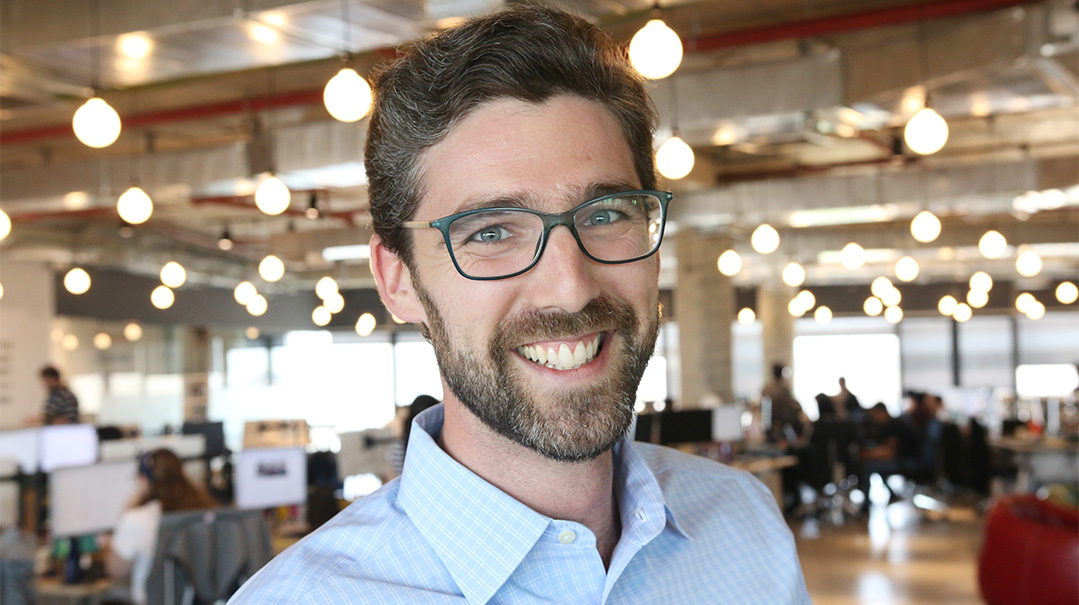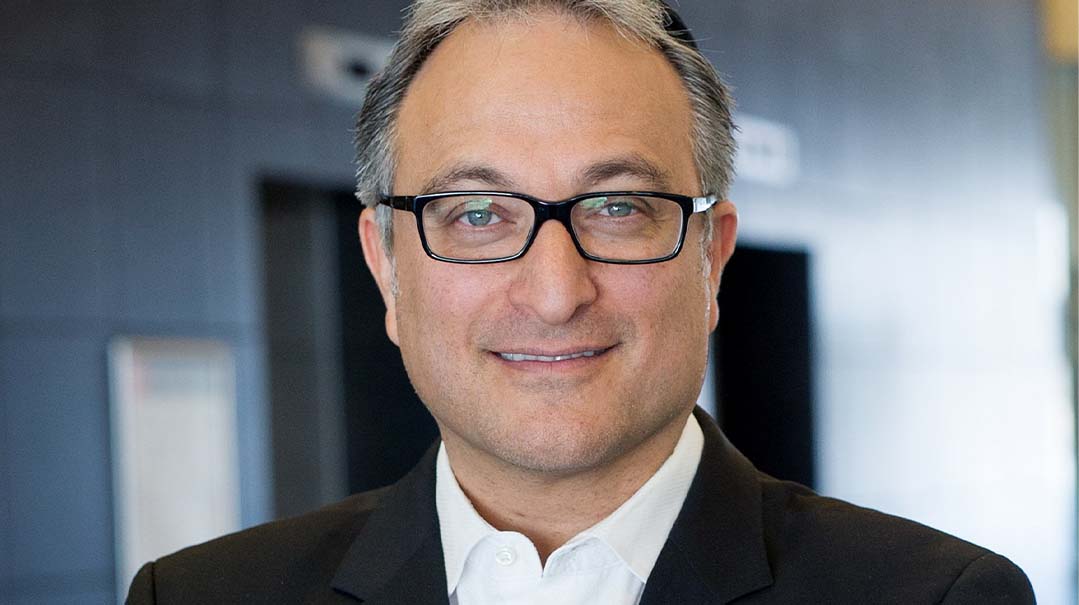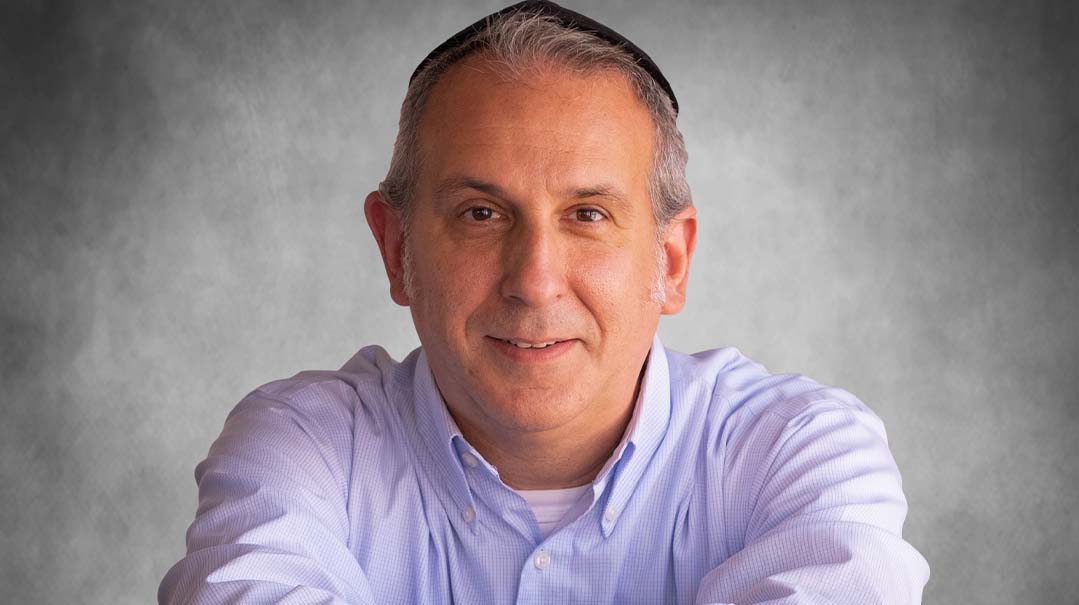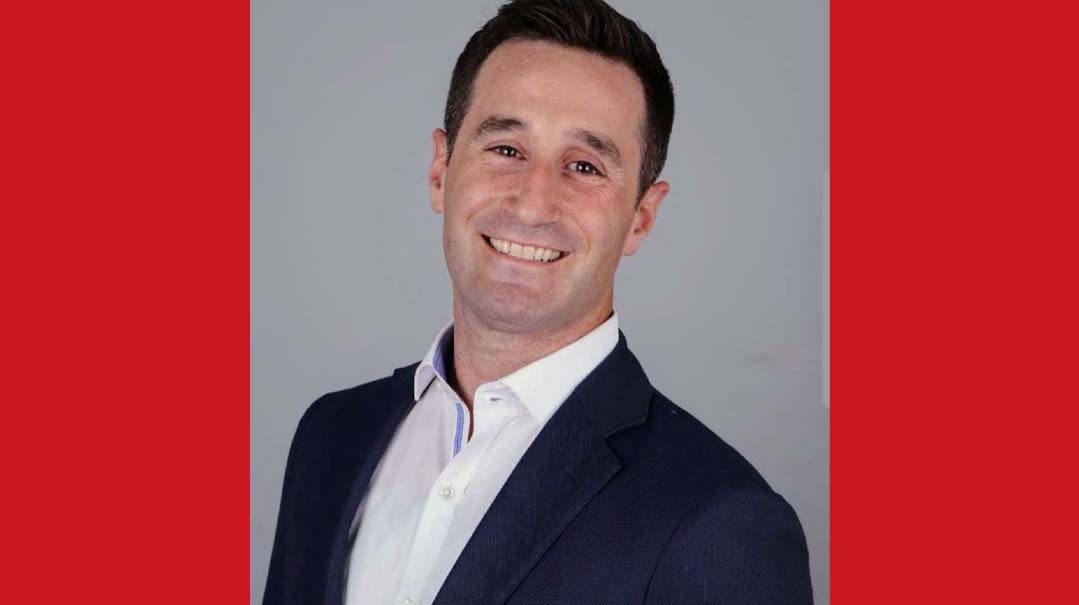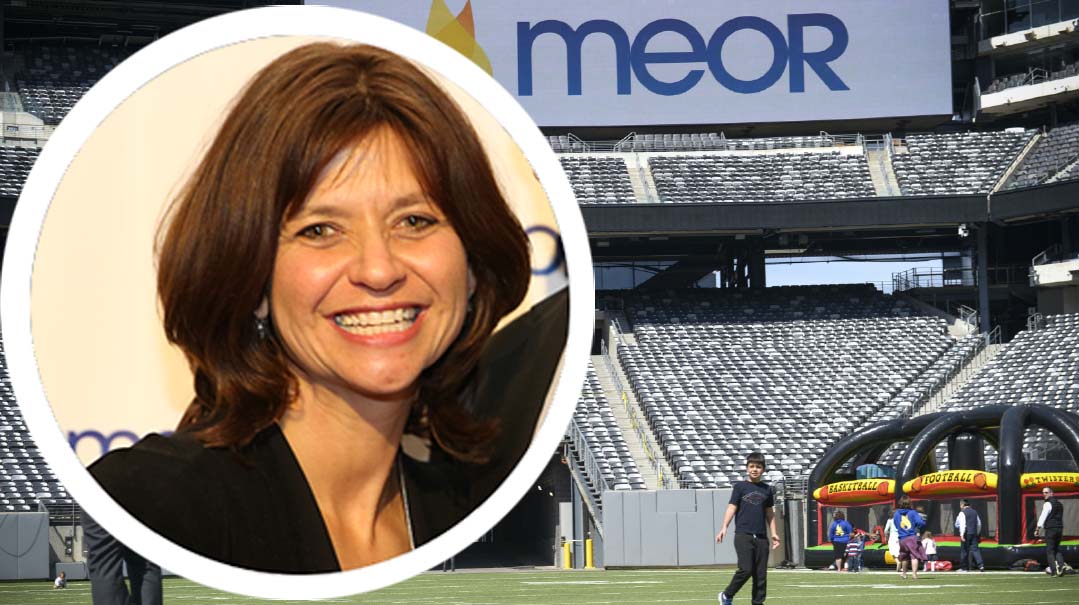Work/Life Solutions with Mordy Golding

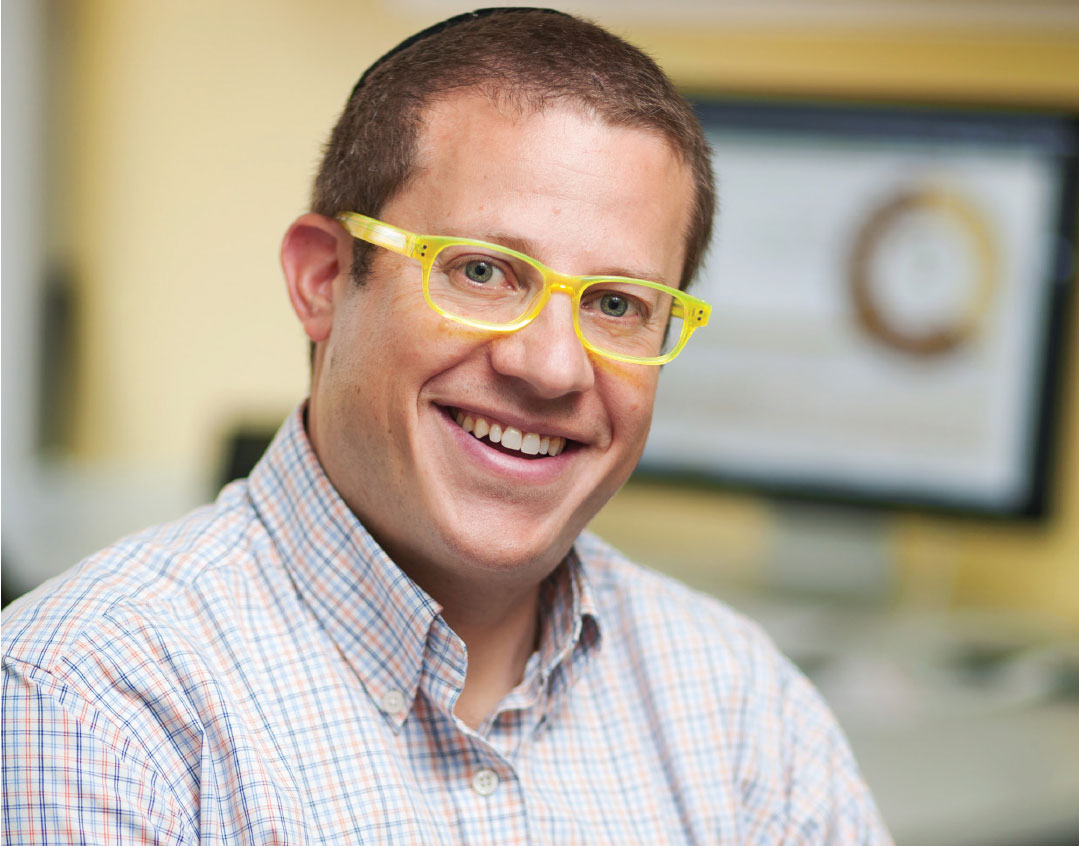
Who
Mordy Golding, Director of Content at LinkedIn
What
Mordy is a content and design guru, with a fascinating career trajectory. He started at Mesorah Publications in the early ’90s, then worked for a couple large companies before Adobe recruited him as a product manager for Illustrator. Afterward, he founded his own design agency, working with top-tier clients, including Nike, the New York Times, and the NBA. Then, in 2011, he became the VP of content strategy for Lynda.com, which got acquired by LinkedIn four years later. Since then, Mordy has been their director of content, leading a team of talented subject matter experts to create a vast library of high-quality learning content, primarily in the form of on-demand, online, video-based courses. (He’s even published over 50 online video courses and books himself!)
Where
A Brooklyn native, Mordy learned at Chaim Berlin and in South Bend, then attended Touro College. He and his wife have three children (and two grandchildren) and live in Cedarhurst. While he works remotely for LinkedIn, Mordy enjoys traveling the world helping professionals use tools and technology to be more productive and successful.
Why
Mordy’s job is übercool! He’s literally responsible for the way millions of people consume content and he’s shaping the future of video-based education. At the same time, he’s down to earth, modest, and genuinely wants to help others forge the career of their dreams. (If you’re open to tech, I highly recommend you connect with him on LinkedIn.) I’m personally inspired by his unwavering dedication to Yiddishkeit, as he infuses Torah values into everything he does. Indeed, he’s making a colossal kiddush Hashem on a global scale.
1 of 9: What opportunities or personalities played a role in your career path?
One day, the phone rang. It was Adobe, offering me a job — at their headquarters in San Jose, California. Native New Yorkers with two young children at the time, my wife and I made the difficult decision, with guidance from our Rav, Rabbi Yaakov Feitman, to relocate to California to pursue the opportunity. We stayed for three years before moving back (Rabbi Feitman recommended we return in time for our son to attend first grade), but the experience I gained and the relationships I built at Adobe catapulted my career — a 10x jump, as we say in the tech world.
Even when opportunity comes knocking, you need a trusted advisor and partner to discuss, plan, and act upon it. Throughout my career, my wife has been my executive coach, my CFO, my board of directors, and more — we make decisions together and my success is due to her support. People often say you can be married to your job or your spouse — I invite my spouse into my career so at least to me, they’re one and aligned.
2 of 9: Which three character traits have played a key role in your success?
I’m told I’m a good communicator — be it speaking publicly or in written form. According to LinkedIn data, communication skills are one of the largest skills gaps. (A skill gap is the difference between the skills an employee has and the skills their employer actually needs them to use.) It’s often overlooked, but in today’s e-mail-driven business world, the art of writing is a key ingredient to success.
At LinkedIn we have a saying: “Trust is consistency over time.” While I don’t actively promote my Yiddishkeit, I don’t hide it either. I’ve found that by consistently behaving according to Torah values, I’ve built a level of trust throughout my career. Especially in the world of tech where tolerance and diversity are embraced, I find that people respect you when you’re consistent in your beliefs.
For me, that means acting like a ben Torah no matter the circumstance. I always wear a yarmulke, avoid foul language like the plague (coworkers even apologize when they use it in my presence), and express integrity in everything I do. In discussions about mindfulness, a big topic in the tech world these days, people often tell me they admire that I pray every day. (LinkedIn has a dedicated prayer room in many of their offices.) And at social events, people tell me that my choice to keep kosher is a sign that I hold myself to a higher standard.
Finally, I’d say I embrace a growth mindset. I highly recommend Carol Dweck’s book, Mindset — every parent should read it… twice. I’m always curious and open to feedback and suggestions, which has opened doors or possibilities I may never have considered or even realized were there.
3 of 9: What do you do to relax, recharge, or simply have fun? How do you make time for that, and how often?
First, there’s Shabbos. We often take for granted what’s really an incredible gift. A non-Jewish manager once shared that she believed a key reason for my success was that I have and keep Shabbos. Hearing that renewed my appreciation for it, especially in the tech-crazy world we live in. Inspiration for strengthening your emunah and bitachon doesn’t only come from rebbeim or motivational speakers on the frum circuit — if you open your eyes to it, you can see it everywhere, even at work.
Outside of that, I travel a ton for business and rack up plenty of frequent flyer miles. (I was once named a RoadWarrior MVP in American Way magazine.) My family and I love to travel and see and experience as much of the world as we can. LinkedIn offers unlimited vacation days and they also shut down the entire company for the week of July 4th and at the end of the year, so that’s a good balance for working at a fast-moving tech company.
5 of 9: If you were granted an extra three hours per day or a spare million dollars, what would you do with that time or money?
The same things I’m doing today. Time and money are like a gas — they simply expand to fill whatever vessel they are stored in. Audit your time and money and make the right decisions; more often than not, you’ll find that extra time and maybe even some money.
Okay, I can tell you’re not happy with that answer. Warren Buffet famously stated that time is the one thing he can’t buy with all his money… I’d use the money to hire someone to help me better manage and make the most of my time — specifically so that I could travel more, spend more time with family, and give back to the community.
6 of 9: What is the most inspiring feedback you’ve ever received? Did that impact what you did next?
Early in my career at Adobe, I would often present in front of large crowds at industry events and conferences. I once received an e-mail from someone who saw me teach on stage, stating how I was his hero and that I inspired him to pursue his own career.
We all suffer from some level of Imposter Syndrome, a belief that we don’t deserve the success we’ve earned. Until then, I only saw myself as a guy on stage building my own career. But after that e-mail, I realized that my actions on stage and in the public spotlight were less about me and more about the impact on other people in the crowd and my ability to inspire others.
To this day, I keep a printout of that e-mail pinned to my office wall as a constant reminder of my responsibility to leverage my success to help others achieve theirs.
One example: I recently helped organize an event in the Five Towns talking about opportunities for the frum community in the world of tech. Months later, I bumped into a friend who expressed how his daughter was inspired by the presenters that evening and is currently pursuing an exciting career as a data scientist.
8 of 9: Can you share a time when you had to navigate the tension between your deepest values and the business world?
You make it sound like the business world is an evil place that constantly challenges your values. Unfortunately, all too often, we see people exhibiting behaviors that seems to go against Torah values in shidduchim, personal relationships, with spouses/family, or all aspects of life. In other words, there’s tension everywhere in life.
But if I had to point to a specific business challenge, it would be two very similar events. The first was when I was working at Lynda.com in 2015 and LinkedIn informed us of their intention to acquire us. There was a tremendous amount of exciting planning and work, leading up to the public announcements that were to take place over Pesach — when I always take the entire week off to be with family. Choosing not to be present at arguably one of the most exciting moments of my career was a difficult decision.
The second was just over a year later when almost the exact same thing happened: Microsoft announced their acquisition of LinkedIn over Shavuos. I’m not aware of anyone big enough to acquire Microsoft, but if that would ever happen, I’m pretty sure it would take place over Succos.
Overall, I’m grateful to work at a company like LinkedIn. (We’re owned by Microsoft, but we operate as a separate entity.) LinkedIn is consistently voted as the most trusted technology company, and there’s a close match between the company values and the Torah values I hold dear. They say if you want to lose weight, surround yourself with an environment in which you can only find healthy food. Likewise, if you can work in an environment that doesn’t threaten your values, you won’t find much tension.
9 of 9: If you were advising a young man/woman hoping to launch a career as an entrepreneur, which “do’s” and “don’ts” would you share?
Considering how fast the business world evolves, embrace an “always be learning” mindset. Stay curious and read a lot. And partner with your parents or spouse to set goals and have a plan.
I think people are afraid to do that because they don’t want to commit or it’s too difficult to think about the future. Know that it’s okay to change the plan as you go. But you need to have one. One of my managers used to say, “The plan is the plan, until the plan changes.” Embrace change.
Originally featured in Mishpacha, Issue 760. Moe is the Founder & CEO of Winfluencers, an early-stage startup that empowers micro-influencers to monetize their passion.Previously, he was the Head of BizDev for Hometalk, Strategy Consultant for Deloitte, and Regional Director for the Lauder Foundation. He holds an MBA and semichah, and published his first book, The Gift of Stuttering (Mosaica Press, 2016). He also teaches a daf yomi shiur, produces inspirational videos for Aish.com, and gives lectures to audiences worldwide. Moe lives in Ramat Beit Shemesh with his wife and children.
Oops! We could not locate your form.







